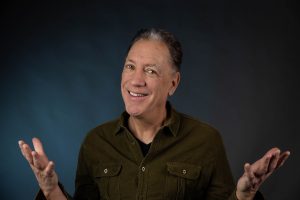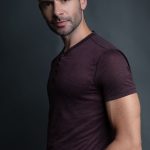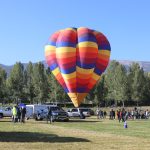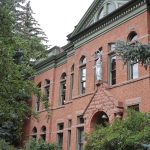Geoffrey Tabin, fourth person in world to summit the tallest peaks in each continent and founder of Cure Blindness Project, speaks on Feb. 27
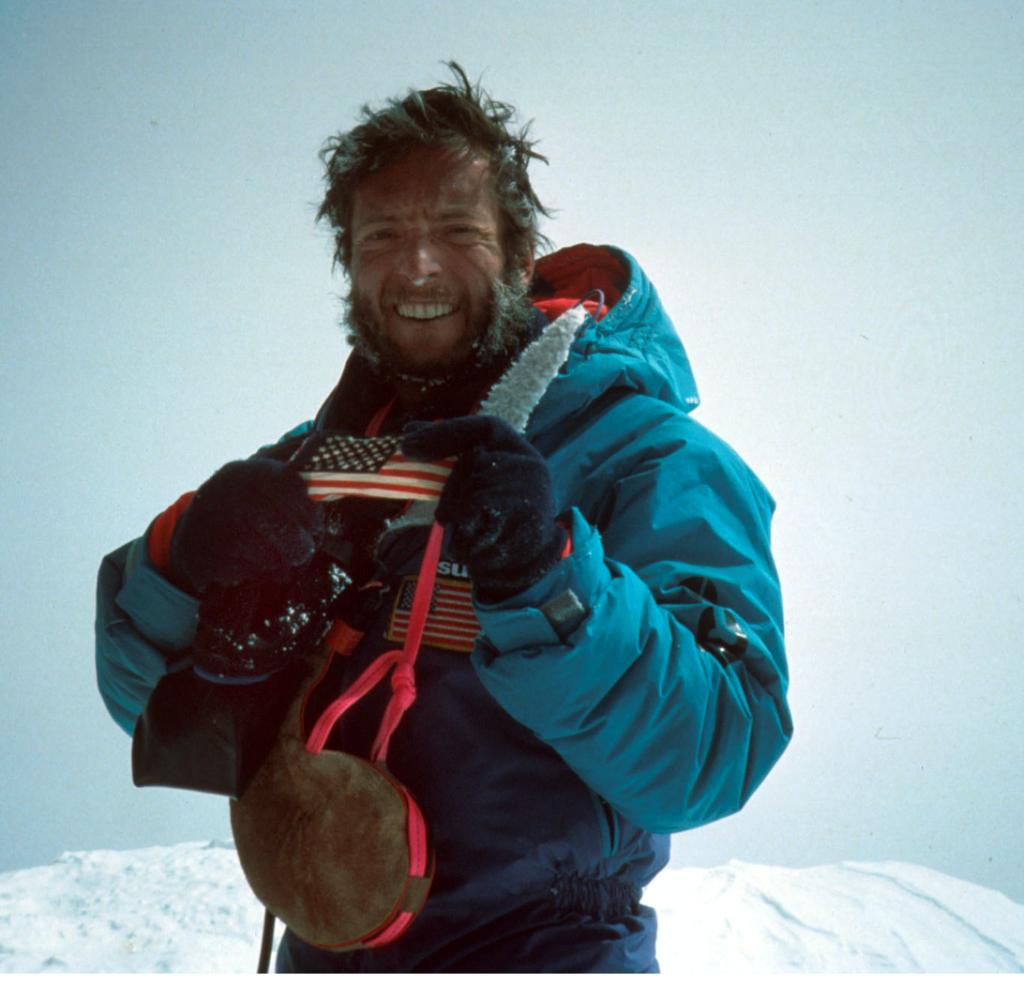
Nima Tashi/Courtesy photo
A love for climbing led Geoffrey Tabin to not only become the fourth person in world to reach the tallest peaks in all seven continents, but also to become an ophthalmologist who launched the Cure Blindness Project, which has provided 1.6 million cataract surgeries to people in Nepal and beyond. At 6 p.m. on Feb. 27, he talks at Pitkin County Library about his experiences.
He didn’t set out to accomplish either of those lofty goals; rather, he followed his passion for mountaineering and, along the way, discovered a great medical need.
His adventures began with a scholarship at Oxford that funded climbing the highest peak in Australasia. During the trip, he was incarcerated in Indonesia for about 10 days for being in a restricted area; officials suspected he was a CIA agent.
“Nevertheless, it was a great trip,” he said.
Once he returned home, he started medical school and was asked to speak at American Alpine Club meeting.
“I told a couple pretty funny stories, and a couple of my climbing heroes were there, and I got a chance to meet them,” he said, adding that they ended up climbing together.
They invited him to join an all-star American team to make the first ascent up the east face of Mountain Everest — the largest and steepest side of Everest, which no Westerner had approached since 1921. That was in 1983, and their route has never been replicated.
After finishing medical school, he was invited on several trips, both as a doctor and accomplished mountaineer, including guiding a trek up the highest mountain in Antarctica. Suddenly, he found he had climbed three of the hardest of the seven summits on each continent.
“In terms of the seven summits, it wasn’t like I ever had a goal, but it became kind of an easy thing because at that point, I had actually already climbed Denali, and I was getting paid to be a guide to take people up to the highest peak in South America. And so the only things that were left were the pretty easy ones,” he said. “The seven summits were just something that happened, but it makes for a nice, easy talk.”
From there, he was asked to work at a hospital in Nepal, where he witnessed “the miracle” of cataract surgery — and the huge need for it in 1989. He was on the cusp of applying to get his doctorate in public health, when he saw a Dutch team perform cataract surgeries in Nepal.
“There were about 30 people who were totally blind and just waiting to die. At that time, it was just accepted in Nepal that when you get old, you hair turns white, your eyes turn white, and then you die,” he said, adding that when the Dutch team intervened, “I’ve never seen a miracle like that. People just blossomed back to life.”
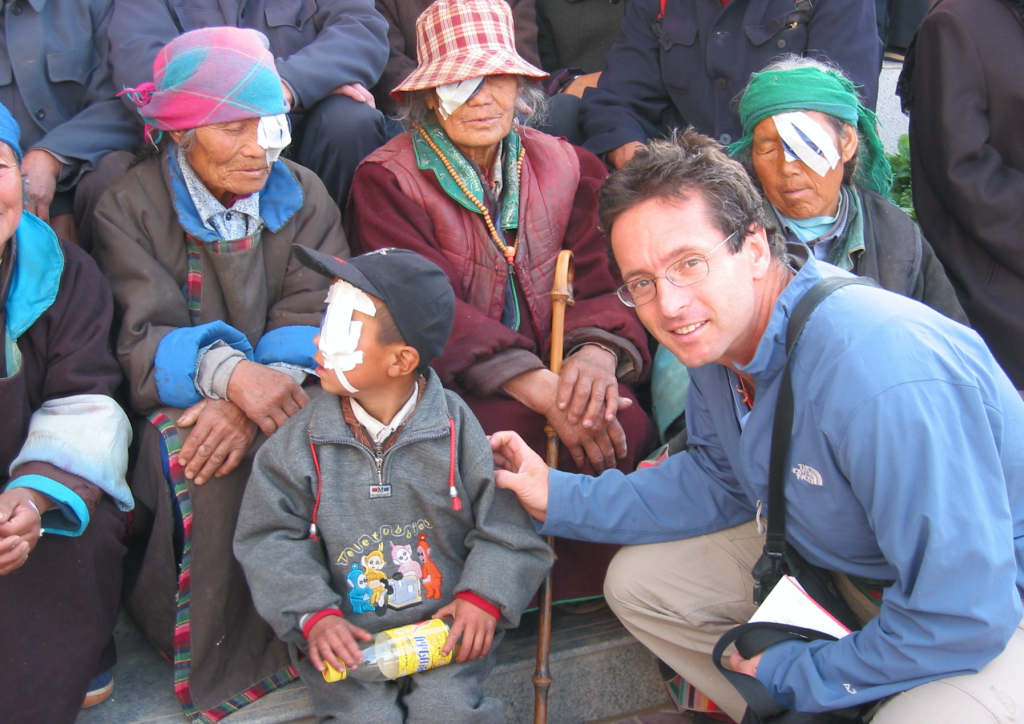
No one had been performing modern cataract surgery with lens implants, and he saw this was a place to make a difference. He returned to the States to train as an ophthalmologist, and four years later, he moved to Nepal to develop clinics and launch the Cure Blindness Project. Since 1994, they’ve directly facilitated 1.6 million cataract surgeries and have created training and infrastructure for eyecare services.
“It’s kind of the lowest hanging fruit in the global public health (need). There are 17 million people in our world who are totally blind from cataracts and can get perfect vision with cataract surgery, and so most of my career has been developing systems … and how I can deliver 100% quality of care to the poorest of the poor,” he said.
About a third of the money for surgeries comes from government aid, another third comes from foundation grants, and the rest stems from private donors.
“I’m hoping we’ll be raising awareness and that they’ll be some philanthropic-minded people from Aspen that may be interested in helping,” he said, noting that federal aid has been put on pause.
In addition to being a professor of ophthalmology and global medicine at Stanford University, he spends a lot of time in Africa, which has a large blindness problem.
“They’re so good in Nepal now that they don’t need me. It’s the only large, poor country that has reversed its way in blindness,” he said.
His talk will include an extensive Q&A, as well as some information on global health issues. He will also offer signed copies of his book, “Second Suns,” which he cowrote with David Oliver Relin.
“I’ve been really lucky because I just sort of stumbled into this from my passion as a rock climber,” he said. “I got lucky getting invited on some of these trips, which then exposed me to the needs of less-resourced countries and gave me the opportunity to travel and really changed my outlook on what I wanted to do and what I could do as a physician.”
Aspen U is Aspen One’s free program to educate employees and the community about climate and justice through conversations facilitated by leaders in the fields.
What: Aspen U Speaker Series: Cure Blindness Project, a Night with Dr. Geoff Tabin
When: Doors at 5 p.m.; talk at 6 p.m. Feb. 27
Where: Pitkin County Library, Community Room
Cost: Free, but please consider donating money to the Cure Blindness Project
More info: aspensnowmass.com or cureblindness.org
Wheeler Opera House presents ‘Soundings’ with multifaceted artist
The Wheeler Opera House will host an afternoon of poetry and exploration, “Soundings: A Reading and Workshop with New York-based Artist David Gonzalez,” from 4 to 5 p.m. Monday, Sept. 15.
Details released surrounding Aspen’s Castle Creek Road bike death
A 64-year-old woman was involved in a bicycle accident on Castle Creek Road that resulted in her death on Monday.
